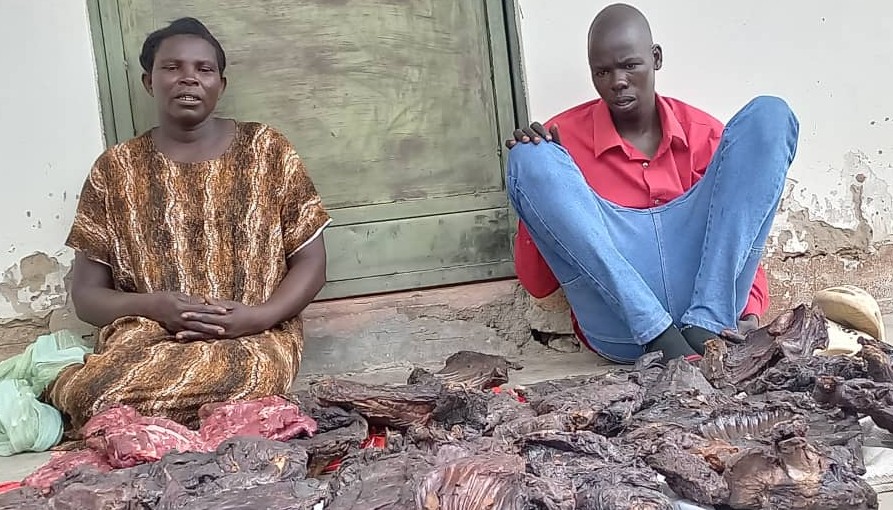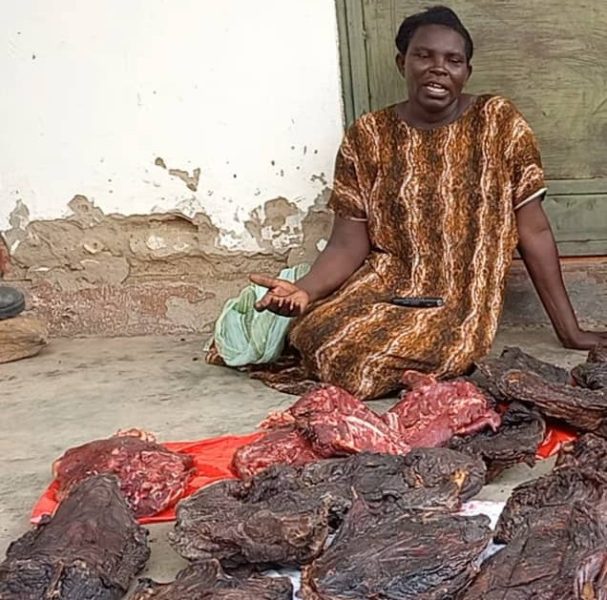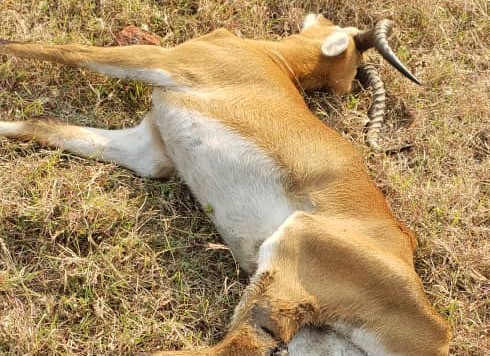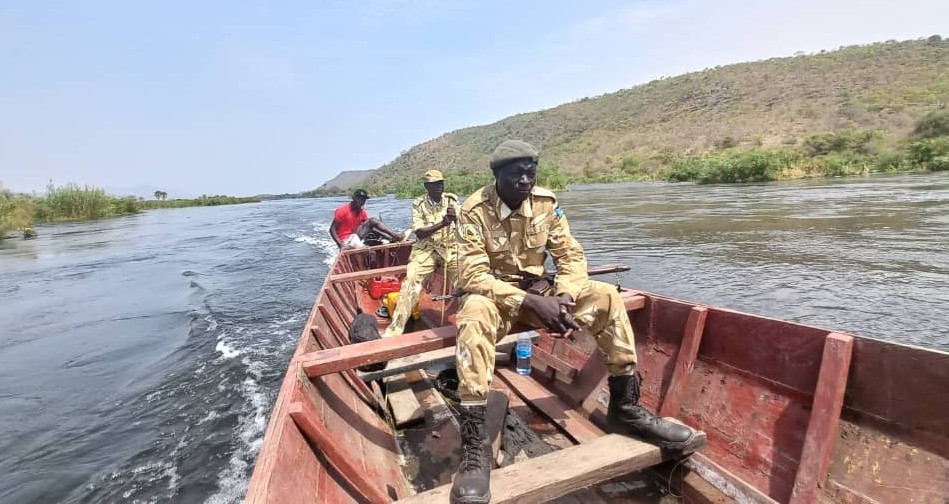
Dust swirls across Nimule’s potholed road as motorcycles weave past long lines of waiting vehicles. This is South Sudan’s busiest land crossing a place where trade, legal or not, thrives. The country’s economic freefall has made the national park a hunting ground, and its exit points like Nimule an escape route for smuggled wildlife.
Nimule checkpoint sits along a vital highway that cuts through Nimule National Park, linking Juba to Uganda via the lush, threatened Gordon Hills. Though vehicles are rarely searched, documentation is routinely checked.
The rest especially motorcycles laden with bags and cargo often pass uninspected. It is an open secret that wildlife products, repackaged as recyclable plastics or scrap iron, slip through undetected.
Among the crowd that morning was Flora Duku, a mother of five from Kerepi. Balanced behind a motorcyclist, she carried a heavy aluminum pan its lid missing, covered instead with a white plastic bag. To most, it looked ordinary. But Eunice, a trained officer with the Wildlife Crime Unit, saw something that didn’t sit right.
When the motorcycle attempted to bypass inspection, officers flagged it down. Asked what was in the pot, Flora responded simply: “Just property I couldn’t fit in my bag.” She said she was heading to Nimule Market to sell fish, as she often did.
But when she was asked to step aside and one of the officers peeled back the plastic, 32 pieces of freshly butchered antelope meat were uncovered not just a violation of the law, but a revelation of the desperation many mothers like Flora quietly carry.
“I went to buy fish but did not get any,” Duku told officers. “I bought this meat because they have a high demand.”
She revealed she had purchased the meat from soldiers in Kerepi, then leaned in, almost conspiratorially, and added. “It sells fast.”
With startling openness, she admitted the stakes.
“I know that the law is against killing these animals, but what can I do? This is the fastest way to get money and pay for my children’s school fees.”
“One would buy at a wholesale price as cheap as 120,000 South Sudanese pounds and sell it to other vendors, making a profit of at least 200,000 to 300,000 per sale,” she explained.
Her tone was calm not remorseful, but realistic. To Duku, this was not poaching. It was business. It was survival.

The numbers speak volumes. In a country ravaged by economic flop, where inflation has devalued wages and formal employment is rare, the underground bushmeat trade offers quick returns albeit illegal ones. A single pot of antelope meat can triple in value within hours.
“This is no longer just a conservation issue. It’s a social crisis,” said James Mading, head of Nimule’s Wildlife Crime Unit. “We arrest people, but it’s like mopping a leaking floor. The arrests don’t stop the hunger.”
In recent weeks, Mading’s unit has arrested at least five people for wildlife trafficking. Many more are detained briefly and released, often due to lack of evidence or interference by local power structures.
South Sudan’s wildlife isn’t just under threat from civilians. Increasingly, residents and rangers allege that armed soldiers are key players in the trade using military-grade weapons to hunt game and transport the meat under the protection of uniforms.
Earlier that same morning, rangers stationed near Full Falls in Nimule National Park heard gunfire. They pursued a suspected poacher, only to find a wounded antelope that later died. The poacher escaped across the Nile and into Uganda, rifle in hand.

Wildlife sightings have plummeted. Species once common in the park have vanished or migrated.
“We try to educate the community,” said Colonel Ambayo Justice Francis, a senior wildlife official, “but when people don’t have jobs, lectures don’t fill stomachs.”
The Ministry of Wildlife and Tourism admits the scale of the problem.
“We’re not banning bushmeat. We’re calling for sustainable use,” said Khamis Adigo, Director General for Wildlife Conservation. “If we don’t stop the mass killing, the next generation won’t know these animals existed.”
A legal framework for wildlife protection exists. A new conservation bill is before Parliament. But on the ground, enforcement is fragile. More than ten government vehicles used to smuggle wildlife products now sit impounded in Juba unused and gathering dust. Plans for joint operations with Ugandan authorities and new ranger outposts remain largely aspirational.
“Without alternative incomes, stronger laws, and real deterrents,” said Mading, “this will keep happening.”
Flora Duku’s story is not unique. Across South Sudan, poverty and hunger are pushing mothers, fathers, and youth into the bushmeat trade. For them, an antelope is not a protected species it is school fees, medicine, a day’s food.
In such a scenery, the law becomes abstract a distant idea, overshadowed by immediate need.
And so, on a warm morning at the border, Flora Duku stepped off a motorcycle carrying more than a pot of meat. She carried the weight of a nation’s crisis one that cannot be solved by arrests alone.


